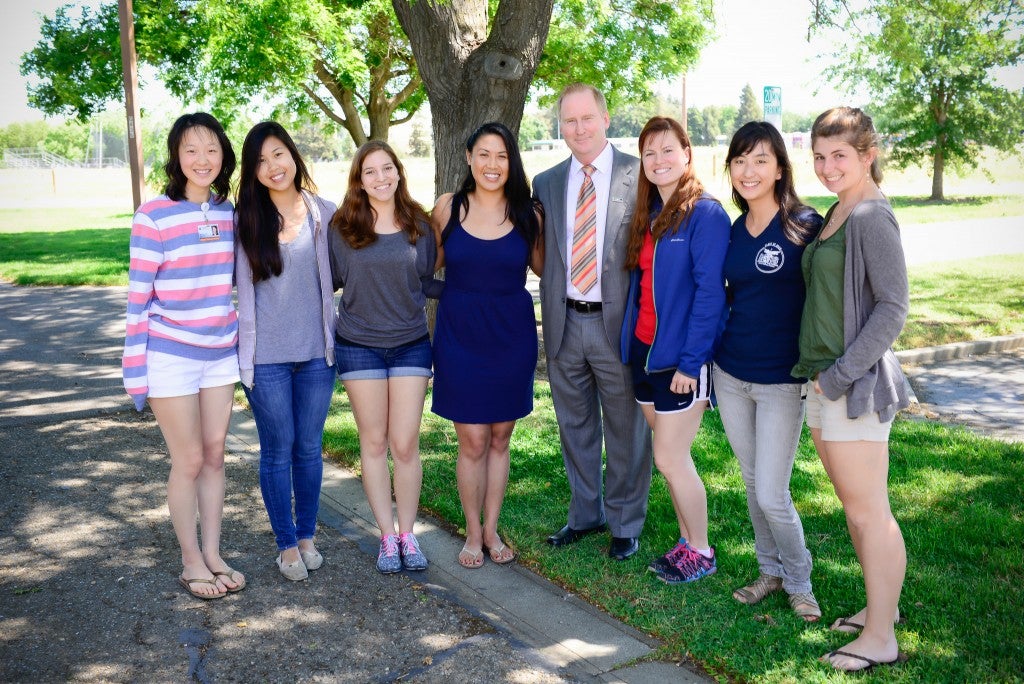“Leadership and learning are indispensable to each other.” – John F. Kennedy
A primary goal in our strategic plan is to educate world leaders in veterinary medicine who will contribute to our society in multiple fields, from private practice to public health. During the most recent American Veterinary Medical Association (AVMA) meeting, I was able to observe the benefits of our leadership training for our veterinary students. The student leaders of our Student Chapter of the American Veterinary Medical Association (SCAVMA) came to the AVMA meeting to network with national leaders, meet students from other schools, and promote the values of professionalism and engagement.
While the concept of a national association of Student Chapters of the AVMA was first proposed in 1966, it was the UC Davis School of Veterinary Medicine SAVMA who elected a committee in 1969 that set the framework for the proposed national student association. Our current students have continued this tradition of involvement at the national level by addressing important issues facing students, such as student debt and mental health and wellness.
We have created a number of important programs and opportunities to foster leadership development for our students. These efforts include various leadership programs offered through our Career, Leadership and Wellness Center. These programs include seminars and a newly developed certificate program in ‘Personal Development & Leadership.’ The demonstration of leadership is often situational and those who develop leadership qualities do so in many different ways. Our students have the opportunity to develop their leadership skills through more than 30 student specialty clubs and organizations that are dedicated to increasing leadership skills and creating opportunities to expand their service activities and knowledge of the profession.
As we seek to develop our future leaders, we should be aware of how much we can learn from our students. As I listened to our student leaders at the AVMA convention, I was struck by their clarity of vision and enthusiasm about the future. They fostered an articulated discussion of the critical issues for the future of the profession and their passion to be part of the solution to the problems facing veterinary medicine. In contrast to the AVMA veterinarians in attendance at the AVMA Convention who lamented about a perceived problem with accreditation of veterinary schools and workforce concerns, the students spoke of more immediate issues related to their economic reality and job satisfaction. Their passion and energy were contagious and inspirational. They talked about what inspired them to become veterinarians and their dreams of contributing to the health of animals, people, and the environment.
Our investment in leadership training programs not only promotes our students to become effective leaders, but also benefits all of us at the school and builds the future for the profession. Our students today will soon be our colleagues and future veterinary medicine leaders of tomorrow. We must demonstrate to our students that we value and nurture leadership to enhance their contributions to society. In turn, we should reflect upon how these same qualities contribute to our personal fulfillment and job satisfaction.

